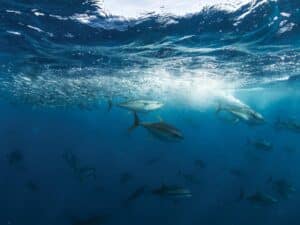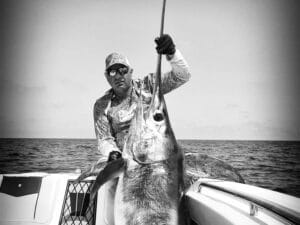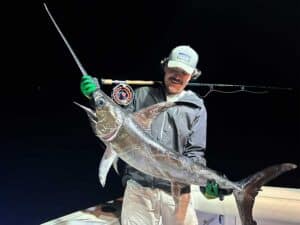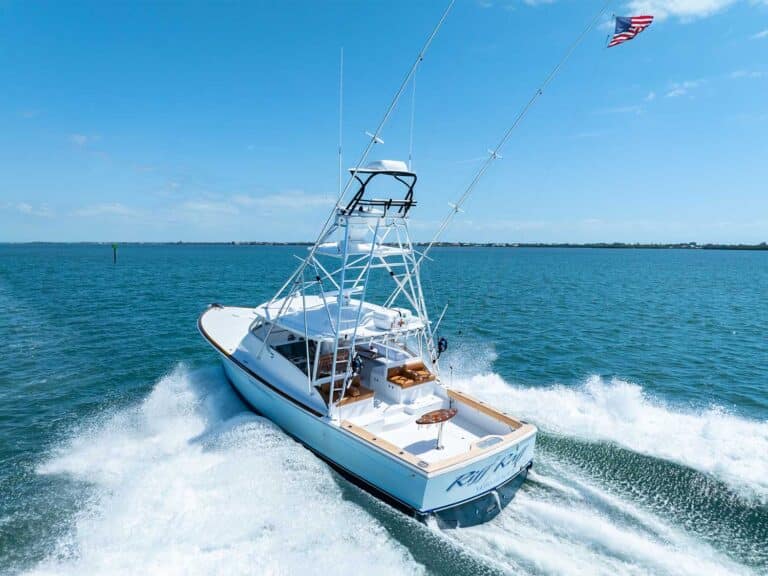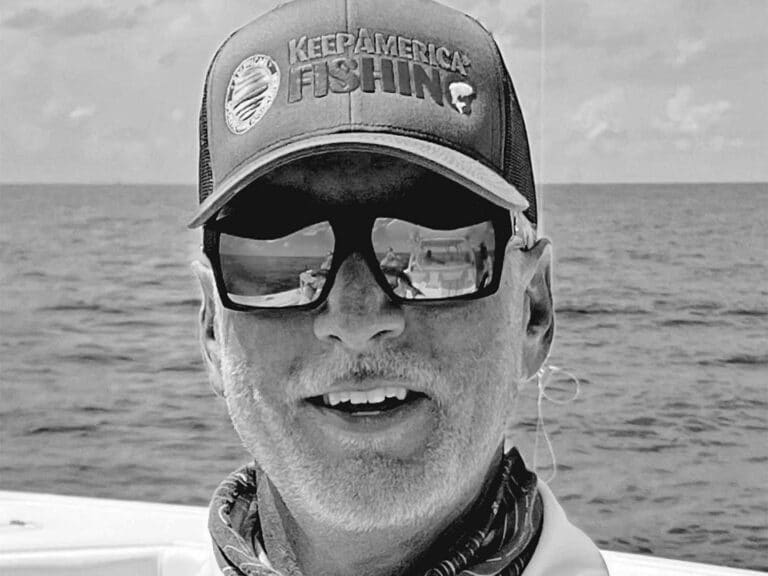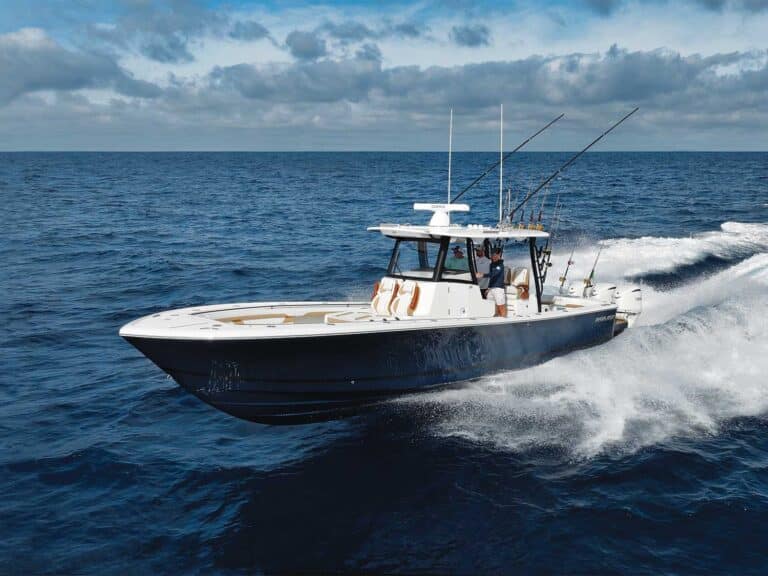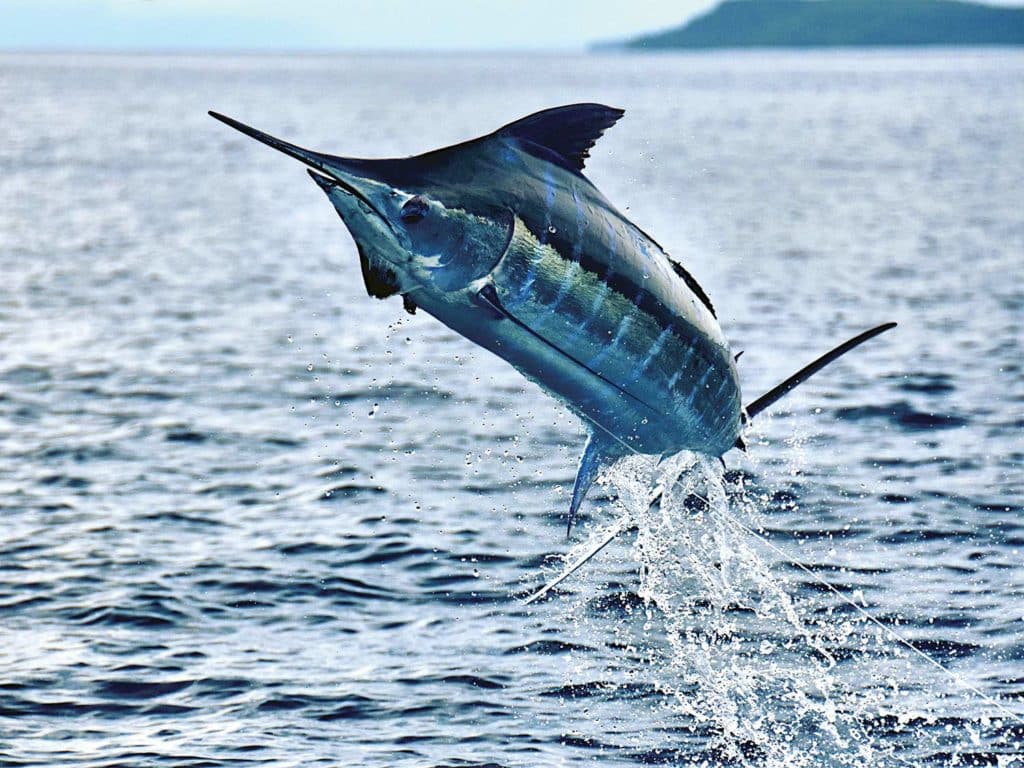
With staggering numbers coming out of Papua New Guinea’s small fishing and tournament fleets, this country has its sights set on the big time. With a new tournament scheduled and billfish numbers on the rise, Papua New Guinea could be the next big-game destination on your list.
There are still some thriving fisheries in the world, and it just so happens that most are also in some of the most beautiful locations. But not too many include the backdrop of an active volcano. Just a tennis ball’s throw away, the deep drop-offs of the waters of Papua New Guinea are teeming with blue marlin and sailfish.
Kokopo in Papua New Guinea is located in the province of East New Britain—a country that speaks over 800 languages and sports an abundance of natural beauty. Lure-maker John Lau also makes Kokopo his home. Lau has been a regular at Hawaiian billfish tournaments since the early 1980s, and between himself and Joe Yee, their unique hand-poured resin lures have been winning—and continue to win—fishing competitions around the world.
Watch: Golfito, Costa Rica’s blue marlin fishery is red-hot.
Born in a Japanese war tunnel in occupied New Britain during World War II, Lau is no stranger to being a part of history, and recently, his very own Tropicana Billfish Tag and Release Tournament firmly established itself in that history with a record 245 blue marlin and three sailfish released over a period of eight days.
While these might not be Magdalena Bay numbers, what is interesting is that there were only 11 boats participating over two weekends, and only eight boats during the weekdays. Any tournament that averages three releases per boat per day is exceptional, but the hookup rate on the angry 120- to 300-pound blue marlin of Papua New Guinea offered the opportunity of more conservation tags, with many teams converting hookups to tags at more than 70 percent. I was also just a few feet short of a clean release of a potential national blue marlin record—estimated at 450 pounds—on 30-pound-test.
The astounding numbers of the Tropicana Billfish Tournament this year beat the previous record of the IGFA-sanctioned 2018 Papua New Guinea National Game Fishing Titles held in Lae, which scored a total of 187 billfish, with at least twice as many teams participating.
Most of the boats in the Tropicana tournament come to Kokopo from outside the capital town, making the three-day, 400-mile journey from Lae. This trip could be completed quicker than three days, but the fertile fishing grounds along the way often distract fishermen with superb marlin, and yellowfin and dogtooth tuna opportunities. “It’s one of those trips where you need to bring your heavy-tackle gear, big gaffs, and plenty of intestinal fortitude,” says professional charter captain, Angus Donald.
After the Rabaul volcano destroyed the previous capital in 1994, Lau decided to hold his own tournament since the Rabaul Fishing Club was gone. Taking place in Kokopo, it has grown into the unofficial home of billfishing in the New Guinea islands—screaming reels and picturesque backdrops included. Just 30 minutes from the wharf to the fishing grounds, which are surrounded by the idyllic Duke of York islands, means time for more wet lines and a chatty day on the VHF radio.
Read Next: Omnidirectional sonar is a game changer, if used correctly.
The fishing community of Papua New Guinea is also planning the first-ever Eastern Fields tournament. Eastern Fields is 80 nautical miles southwest of the capital of Port Moresby, and is a part of the extended Great Barrier Reef system. The rising atoll is most famous for its Napoleon wrasse, fierce dogtooth tuna and epic scuba diving, but it is incredibly difficult to get to without a serious boat. Over 20 Australian and Papua New Guinean teams are planning the trip, and it will be one of the first times the Papua New Guinea fleet will be chasing the huge black marlin that live in their home waters.
The 45th annual Papua New Guinea National Game Fishing Titles will be held April 3-13, 2020, in Rabaul, and if the numbers stay like they have been, 2020 will put Papua New Guinea squarely on the billfishing map—competing with any heavyweight location around the world. —By Jeremy Fry, as told to Capt. Jen Copeland
